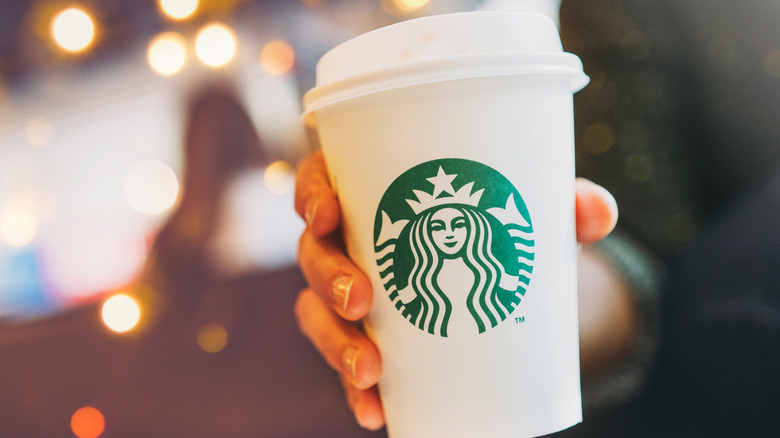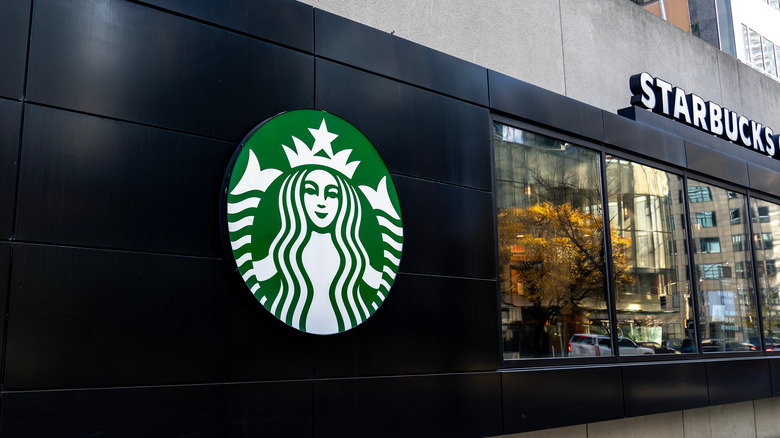Fake Starbucks Locations Are Still Selling Coffee, Despite Legal Threats
From a distance, the green siren calls with the promise of a well-brewed coffee and a place where a community can gather. The Starbucks logo, its coffee, and its corporate culture is more than just a name and a logo. Whether enjoyed near or far from home, the brand comes with a promise that its product meets a standard. When fake Starbucks locations seek to sell unauthorized coffee products to consumers, the choice brews a complicated legal situation.
As reported in a December 22 Associated Press article (via ABC News), three unlicensed Starbucks cafes continue to operate in Iraq. While these cafes are not necessarily new openings, per a 2021 report by The Node, the iconic coffee company is considering new litigation to close down the pirated stores based on an intellectual property infringement. Formerly operated by Amin Makhsusi, the businessman commented that he tried to obtain a Starbucks license but was denied. Instead, he purchases Starbucks coffee, products, and merchandise in another country and re-sells it in the Iraqi cafes. Although this concept can put money in his coffers, it negatively impacts Starbucks not only from a franchisee perspective but from an intellectual property aspect, too.
That Frappuccino is more than just blended liquid. Starbucks is an experience, and the unlicensed location may not be held to the same standards. For now, Starbucks is considering how to proceed, legal-wise, against the fake Starbucks locations in Iraq. And this situation is trickier than that custom drink order.
Does Starbucks have any authorized locations in Iraq?
From driving down the street to the map pins seen on the Starbucks app, many locations seem to have a plethora of Starbucks outlets. Even if some people might feel that the coffee brand has saturated the market, the Middle East may not tell the same story. According to a Starbucks Stories article, the corporation partners with "Alshaya Group to operate Starbucks stores in Bahrain, Egypt, Jordan, Kuwait, Lebanon, Morocco, Oman, Qatar, Saudi Arabia, Turkey, and United Arab Emirates in the Middle East and North Africa region." Notably missing from this list is Iraq.
As seen on the Alshaya Group, the Starbucks locations that it operates respect local customs, incorporate regional tastes, and are committed to the Starbucks experience. That explanation alludes to the concept that the coffee giant is more than just brewed beans served in a cup. When an unauthorized location sells Starbucks items, it may not meet the expectations required of a franchisee. That situation can result in the lack of customer satisfaction, negative impact to the brand, and a cut to the bottom line. When the fake Starbucks locations appear, the company can pursue legal options.
For now, a visit to Iraq might come with a side of official Starbucks withdrawal.

